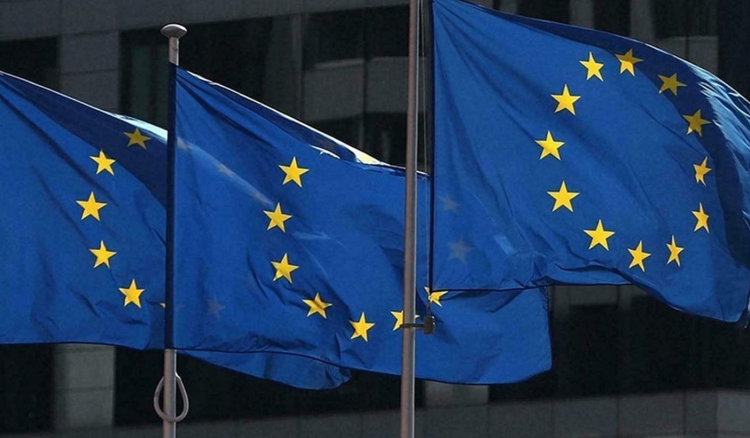- Home
- Middle East
- EU, US to Hold Last-Ditch Trade Talks Through Weekend

©Al-markazia
EU and US negotiators will hold final stretch talks through the weekend as Brussels chases a deal before a July 9 deadline to avoid the return of steep tariffs, diplomats said on Friday.
If the European Union does not clinch an agreement with the United States by Wednesday next week, higher levies will snap back in and unleash economic pain on the bloc.
Seeking to stave off a damaging trade war, EU trade commissioner Maros Sefcovic held discussions in Washington this week with his US counterparts, described as productive, but neither side indicated how close they were to a deal.
The European Commission, which leads trade policy for the 27-country bloc, briefed EU ambassadors on Friday about how talks were going.
During the meeting, a senior EU official told member states there was no deal yet but talks would continue "likely over the weekend", an EU diplomat told AFP.
"A first basic agreement until the deadline isn't off the table," the diplomat said. "Things are still very much in flux."
Another European diplomat said it was not clear yet how President Donald Trump would classify the status of negotiations with the EU when it addresses its trading partners early next week.
Trump could keep the tariff suspension for partners where there is an agreement in principle, restore swingeing tariffs if there is no deal, or reimpose levies where negotiations are going badly, the diplomat said, quoting the commission's analysis.
If no deal is struck, the default levy on EU imports is set to double to 20 percent or even higher—Trump having threatened at one point to slap 50 percent duties.
EU chief Ursula von der Leyen said on Thursday Brussels sought an agreement in principle, which would mean further talks would be necessary on the details.
But the commission believes that whatever happens, an imbalance in trade measures between the EU and the United States will remain.
"This begs the question, asked by a number of ambassadors today, how we prepare to remedy that imbalance," the diplomat said.
Some capitals appear to have reconciled with the prospect of the United States keeping the current flat levy of 10 percent on EU exports—the challenge then being to negotiate carve-outs for key sectors such as cars and aeronautics.
"It's difficult. Everything is complicated. All scenarios are possible," a third EU diplomat told AFP.
With AFP
Read more



Comments